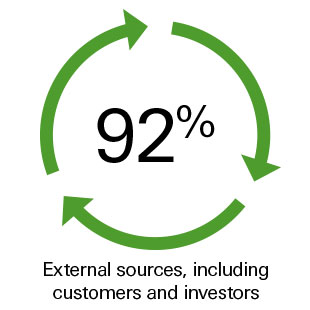A picture of challenge and change
Businesses are living through the biggest global crisis in a generation.
To understand how it’s affected them, including their plans for the future, we surveyed more than 2,600 companies globally as part of our annual Navigator research.
The results paint a picture of challenge and change. While 98% of businesses have felt the impacts of the crisis, 65% have been agile and stable enough to be resilient. And many see the crisis as a catalyst for change and long-term growth.
The insights in the Resilience report will help you grasp those opportunities while overcoming the challenges.
Why not get ahead today?
Navigator – Building back better











